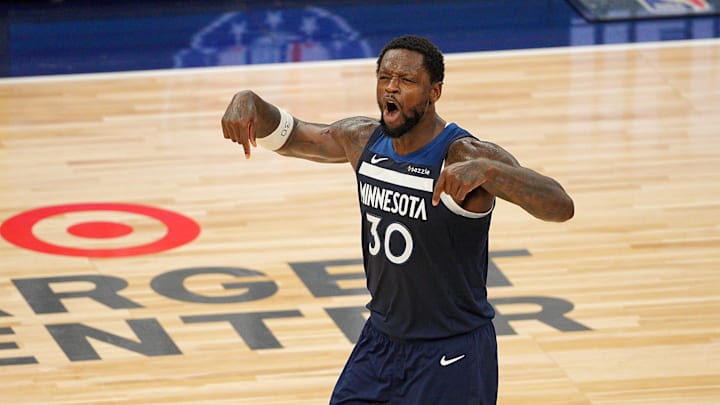Facing the possibility of a 3-0 deficit, the Minnesota Timberwolves perfectly responded with a dominant 143-101 win over the Oklahoma City Thunder. Multiple factors contributed to this win, including elite outside shooting, role players stepping up, and stars playing to their level. However, perhaps the most notable shift for Minnesota was winning the turnover battle, they forced 14 turnovers while committing 10. This was a significant shift from the previous two games, where the Wolves committed 31 turnovers compared to OKC's 18. The Timberwolves' Game 3 performance not only extended the series but also gave them a blueprint to win it.
The Timberwolves' defensive pressure
The Timberwolves' dominance and ability to win the turnover battle in Game 3 were due to their play on both ends of the floor. Defensively, the Wolves' ball pressure and aggression were much better. The Timberwolves swarmed and collapsed on OKC's ball handlers.
They threw different looks at Shai Gilgeous-Alexander and contained the MVP better than anyone has all season, holding him to a season low 14 points on 4-13 shooting while forcing four turnovers. Minnesota's length, size, and aggression bothered Shai in this game. The Timberwolves' physical and athletic defense also limited Jalen Williams (13 points, four turnovers) and Chet Holmgren (10 points). Additionally, the Wolves' suffocating defense helped hold OKC to 31.8 percent 3-point shooting. This style of play replicates and combats what the Thunder have done so well throughout the playoffs.
TJ Shannon steal + transition layup, Target Center loves it pic.twitter.com/CJkmaRbgr1
— Timberwolves Clips (@WolvesClips) May 25, 2025
Minnesota switched quicker than in the first two games and maintained swarming ball pressure throughout the game. The Timberwolves racked up 16 points off turnovers, which is nearly more than the 20 points off turnovers they had in the first two games combined. Ultimately, if the Timberwolves' relentless defensive pressure continues, it could change the series.
Improved ball movement
Offensively, the T-Wolves' ball movement and intention were a lot better. As a team, the Wolves notched 30 assists in Game 3 compared to their previous two-game average of 19. It certainly helps when role players Naz Reid and Donte DiVincenzo are hitting their outside shots. Nevertheless, Minnesota's process was much better than in the first two games, leading to open looks from all areas of the floor.
Nickeil Alexander-Walker driving floater off the catch, created by Julius Randle + Jaden McDaniels + Rudy Gobert pic.twitter.com/QQGMWFgwXf
— Timberwolves Clips (@WolvesClips) May 25, 2025
After struggling with turnovers in the first two games, Julius Randle stepped up, committing zero turnovers and racking up three assists. He was making the right reads and the extra pass. Randle's scoring was also vital as he chipped in 24 points. Anthony Edwards notched a game-high 30 points in part due to his excellence as a self-creator, but also as a result of the improved ball movement. Overall, if the Timberwolves can continue to win the turnover battle, they have a clear path to get back in this series.
